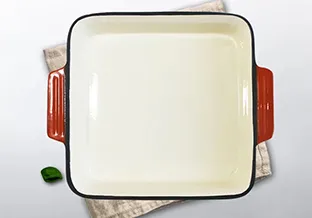
iron utensils for cooking
The Benefits of Using Iron Utensils for Cooking
In recent years, there has been a significant resurgence in the use of traditional cooking methods and utensils, with iron cookware leading the charge. While modern kitchen tools made from non-stick materials and stainless steel are widely popular, iron utensils have unique advantages that make them a preferred choice for many culinary enthusiasts. This article explores the benefits of using iron utensils for cooking, highlighting their nutritional, environmental, and aesthetic merits.
One of the most notable benefits of cooking with iron utensils is their contribution to dietary iron intake. Iron is an essential mineral that is crucial for producing hemoglobin in our blood, which carries oxygen to various parts of the body. Many people, especially women and children, are at risk of iron deficiency anemia. Cooking with cast iron or wrought iron pans can naturally increase the iron content of food, as the metal leaches small quantities of iron into the dishes being prepared. Studies have shown that cooking acidic foods, such as tomato-based sauces, in iron cookware can increase the iron levels significantly, making it an excellent option for those looking to enhance their iron consumption.
In addition to their nutritional benefits, iron utensils are highly durable and long-lasting. Unlike non-stick pans that may degrade over time and stainless steel that may warp under high heat, well-maintained cast iron cookware can last for generations. They are resistant to scratches and can withstand high cooking temperatures, making them ideal for searing, frying, and baking. When cared for properly, iron utensils can develop a natural non-stick surface that improves with use, allowing for healthier cooking with less oil.
iron utensils for cooking

From an environmental perspective, iron utensils are a sustainable choice. The production of non-stick cookware often involves toxic chemicals and materials that contribute to environmental pollution. In contrast, iron utensils are made from abundant materials and can be recycled or repurposed at the end of their life cycle. Furthermore, the longevity of iron cookware means fewer resources are consumed over time, aligning with eco-friendly cooking practices.
The aesthetic appeal of iron utensils cannot be overlooked. Their rustic charm adds a unique touch to any kitchen and dining experience. Cooking with iron often invokes a sense of nostalgia, as many home cooks remember using family heirlooms passed down through generations. The sight of a well-seasoned cast iron skillet sizzling on the stovetop can be quite inviting, making cooking an enjoyable and heartwarming experience.
However, it is essential to note that cooking with iron utensils does come with certain responsibilities. They require regular seasoning with oil to maintain their non-stick properties and prevent rusting. Additionally, they should be cleaned with care, avoiding harsh detergents that can strip away the seasoned layer.
In conclusion, iron utensils for cooking offer numerous benefits, including enhanced nutritional value, durability, environmental sustainability, and aesthetic appeal. Embracing these traditional cooking tools not only supports health and wellness but also preserves culinary heritage. As we move toward a more health-conscious society, incorporating iron cookware into our kitchens may be one of the best decisions we make for ourselves and the planet.
-
Season Cast Iron Perfectly with GPT-4 Turbo TipsNewsAug.01,2025
-
High Quality Cast Iron Cookware - Baixiang County Zhongda MachineryNewsAug.01,2025
-
Premium Cast Iron Pan: Durable & Perfect HeatNewsAug.01,2025
-
High Quality Kitchen Durable Black Round Cast Iron Cookware Pancake Crepe Pan-Baixiang County Zhongda Machinery Manufacturing Co., Ltd.NewsAug.01,2025
-
Cast Iron Cookware - Baixiang County Zhongda Machinery | Nonstick, Heat ResistanceNewsAug.01,2025
-
High Quality Kitchen Durable Black Round Cast Iron Cookware - Baixiang County Zhongda Machinery | Non-Stick, Heat Retention, DurableNewsJul.31,2025


